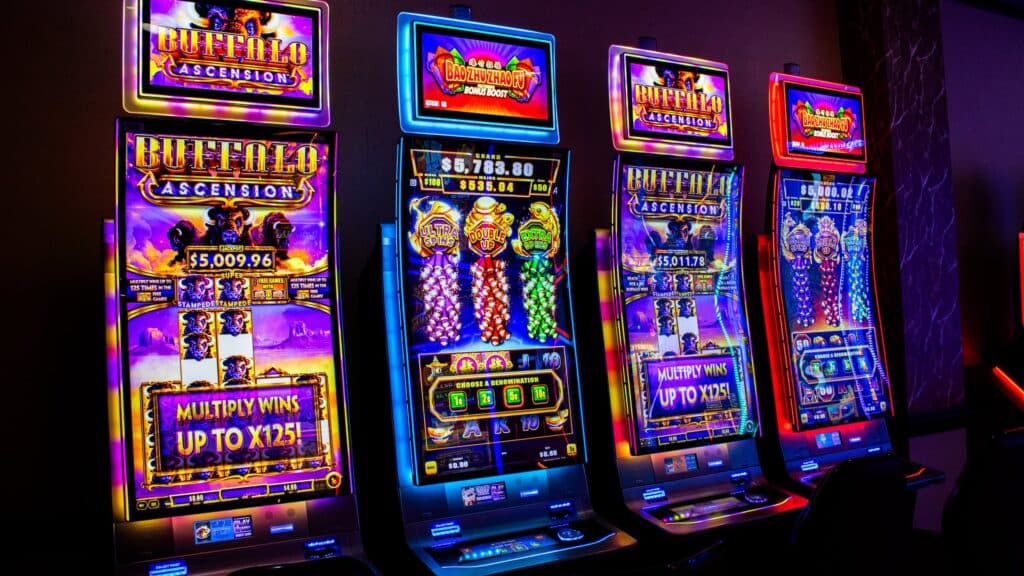Progressive jackpots are among the most exciting and lucrative features in the world of online and land-based casinos. These jackpots, which grow over time until someone wins them, have captured the imagination of millions of players worldwide. But how did progressive jackpots come to be, and how have they evolved to become the gaming phenomenon they are today? In this article, we’ll explore the history of progressive jackpots, their different types, and the strategies and calculations involved in playing them. Whether you're a new player or an experienced gambler, understanding progressive jackpots can significantly enhance your gaming experience.
What Are Progressive Jackpots?
A progressive jackpot is a jackpot prize that increases each time a player makes a wager on a game. Unlike traditional slot machines, where the jackpot is a fixed amount, progressive jackpots grow incrementally, often reaching life-changing amounts. The total prize pool is fed by a portion of each wager placed on the game, and once a player hits the winning combination, the jackpot resets to a base level and starts growing again.
Progressive jackpots can be found in various casino games, but they are most commonly associated with slot machines. However, many table games, like blackjack and roulette, have also incorporated progressive jackpot features over time. In online casinos, progressive jackpots have gained even more prominence, with massive networks linking jackpots across multiple platforms to create larger prize pools.
The History of Progressive Jackpots
The Early Days: The Rise of Slot Machines
Progressive jackpots can trace their roots back to the invention of the first slot machines in the late 19th century. The first mechanical slot machine, called "Liberty Bell," was created by Charles Fey in 1895. Although the game had a fixed payout system, it quickly became popular due to its simple gameplay and exciting win potential.
The concept of a progressive jackpot didn’t emerge until the 1980s, when the first-ever progressive slot machine was introduced. These machines were linked to one another, and the jackpot grew with each spin across a network of machines. This made the jackpot significantly larger and more enticing to players, leading to increased excitement and participation in the game.
Progressive Jackpots in Online Casinos
The evolution of the internet and the rise of online casinos in the late 1990s brought about a new wave of progressive jackpots. Online gaming allowed casinos to link their progressive jackpots across different platforms, further increasing the prize pool. The advent of networked progressive jackpots meant that players could compete for enormous prize pools that were not confined to a single casino.
Online slots like “Mega Moolah” by Microgaming and “Major Millions” became famous for their colossal jackpots, often reaching multi-million-dollar amounts. The ability for progressive jackpots to grow exponentially across a vast network of casinos attracted a new wave of players and set the stage for some of the largest payouts in gaming history.
Types of Progressive Jackpots
Not all progressive jackpots are created equal, and there are different types that players should be aware of. Understanding the differences between these types can help players decide which games to play based on their preferences and goals.
1. Standalone Progressive Jackpots
Standalone progressive jackpots are tied to a single machine or game, and the jackpot increases only with the wagers placed on that particular machine. While the prize pool grows gradually, the jackpot is typically smaller compared to networked progressives. However, the chances of winning are higher, as the prize is only available within that single game.
For example, if you’re playing a standalone progressive slot game in a brick-and-mortar casino, the jackpot grows with every spin that players make on that machine, but once the jackpot is hit, it resets and starts growing again. These types of progressives are great for players who prefer the simplicity and the more direct gameplay experience.
2. Local Progressive Jackpots
Local progressive jackpots are linked to a group of machines within a single casino or a set of casinos in a certain geographic location. These jackpots tend to grow larger than standalone progressives but are still limited to a smaller player base. Local progressives are commonly found in both online and land-based casinos.
For instance, if several machines in a land-based casino are connected to a local progressive jackpot, every time a player makes a wager on one of those machines, a portion of that wager is contributed to the prize pool. The jackpot continues to grow until someone wins, after which it resets and starts accumulating again.
3. Wide Area Progressive (WAP) Jackpots
Wide Area Progressive (WAP) jackpots are linked across multiple casinos, often spanning vast networks of online and land-based gaming establishments. This type of progressive jackpot offers the highest prize potential because the jackpot pool is fed by a much larger player base. The larger player base leads to exponentially higher jackpots, often reaching into the millions of dollars.
The most famous example of a WAP jackpot is Microgaming's “Mega Moolah,” which has made headlines for its record-breaking payouts. Players from various casinos connected to the Microgaming network contribute to the prize pool, making it one of the most sought-after jackpots in the world.
How to Play and Win Progressive Jackpots
Tips for Maximizing Your Chances
While progressive jackpots are largely based on luck, there are certain strategies that can increase your chances of winning and help you manage your bankroll effectively. Here are some expert tips for playing progressive jackpot games:
- Bet Max for the Jackpot: Many progressive jackpots require players to bet the maximum amount in order to be eligible for the jackpot. If you’re serious about winning the big prize, always make sure you’re betting the maximum allowed.
- Understand the Odds: Progressive jackpots have lower odds of winning due to their large prize pools. It’s important to set realistic expectations and play responsibly. The odds can vary depending on the game, so check the payout table for detailed information.
- Manage Your Bankroll: Given that progressive jackpots can take a long time to hit, it’s essential to manage your bankroll wisely. Set limits for your session and avoid chasing the jackpot at all costs. Playing for extended periods without hitting the jackpot can quickly deplete your funds.
- Play Games with a High RTP: RTP (Return to Player) is an important factor when choosing which progressive slot games to play. Games with a higher RTP have better long-term payout potential, which can give you a better chance of hitting the jackpot over time.
Understanding the Jackpot Calculation
The jackpot calculation is based on a portion of each wager placed on the game. In progressive slot machines, a fixed percentage of each bet contributes to the jackpot pool. For example, if a slot machine has a progressive jackpot contribution rate of 1%, then for every $1 wagered, $0.01 goes toward the jackpot.
Let’s say you’re playing a progressive slot with a $1 bet. If the jackpot contribution rate is 1%, $0.01 goes to the jackpot. As more players place bets, the jackpot grows larger, eventually reaching a life-changing amount. Some jackpots can grow into the tens of millions of dollars, but the odds of hitting the jackpot are extremely low.
The Future of Progressive Jackpots
As technology continues to evolve, so too does the world of progressive jackpots. Online casinos are constantly innovating, and we can expect to see even more exciting developments in the world of progressive jackpots in the coming years. Here are a few trends that could shape the future of these massive prizes:
- Blockchain and Cryptocurrencies: With the rise of blockchain technology and cryptocurrencies, we may see decentralized progressive jackpot games that offer transparent and verifiable prize pools. Cryptocurrencies like Bitcoin and Ethereum could play a major role in these games, offering faster payouts and lower transaction fees.
- VR and AR Integration: The integration of virtual reality (VR) and augmented reality (AR) into online gaming could transform the way we experience progressive jackpots. VR casinos may allow players to engage with progressive jackpot games in an immersive, 3D environment, enhancing the excitement and engagement.
- Even Larger Jackpots: As technology advances, we may see even larger jackpot pools, with more casinos connecting to global progressive networks. This could result in jackpots reaching unprecedented amounts, further driving the popularity of these games.
Conclusion
Progressive jackpots have come a long way since their humble beginnings, evolving into one of the most thrilling aspects of modern casino gaming. From standalone machines to vast, interconnected networks that span the globe, progressive jackpots have transformed the way players approach online and land-based casinos. While winning these jackpots is no easy feat, understanding the evolution of progressive jackpots, the types of jackpots available, and the strategies for maximizing your chances of winning can significantly enhance your gaming experience. Whether you're chasing a life-changing prize or simply enjoying the excitement of the game, progressive jackpots will continue to captivate players for years to come.



